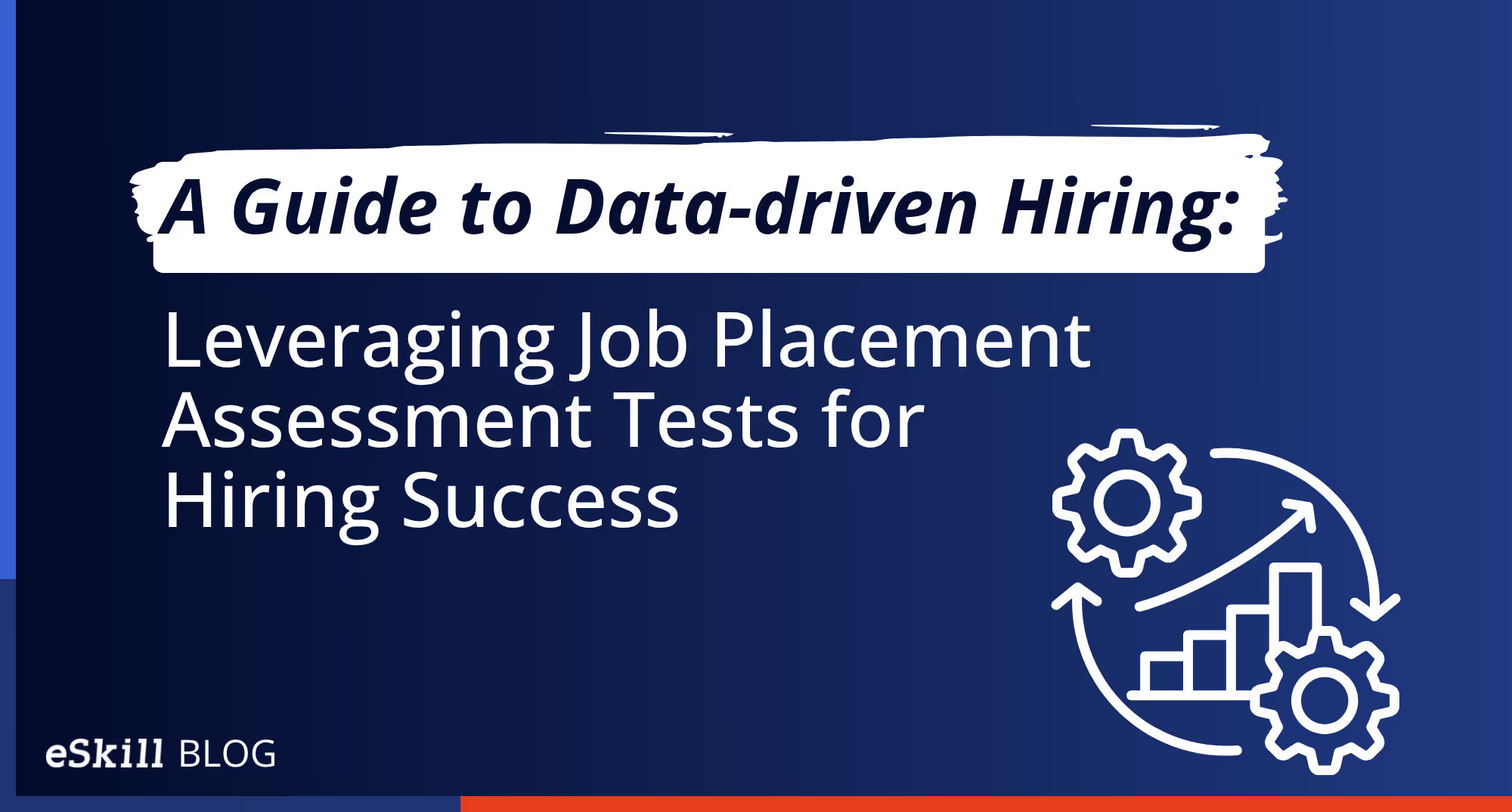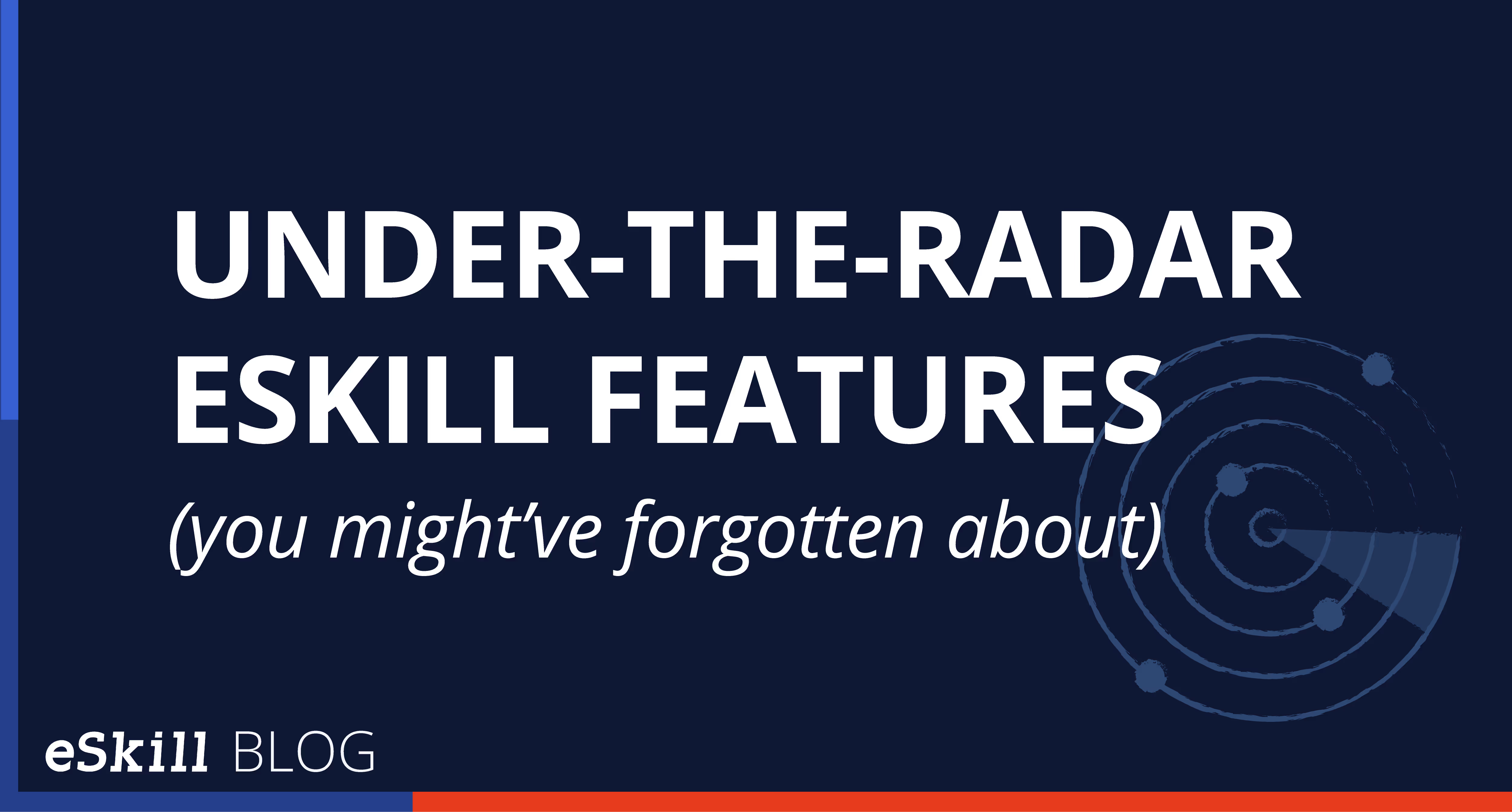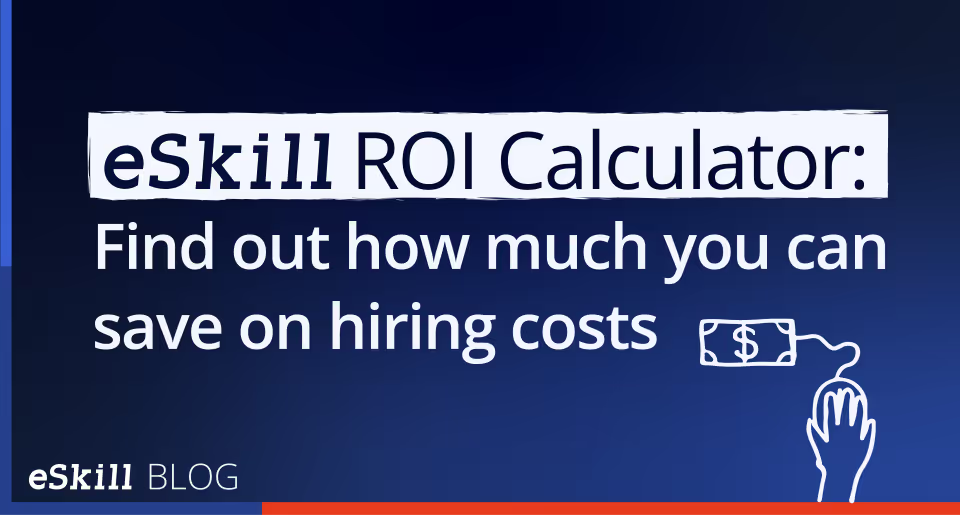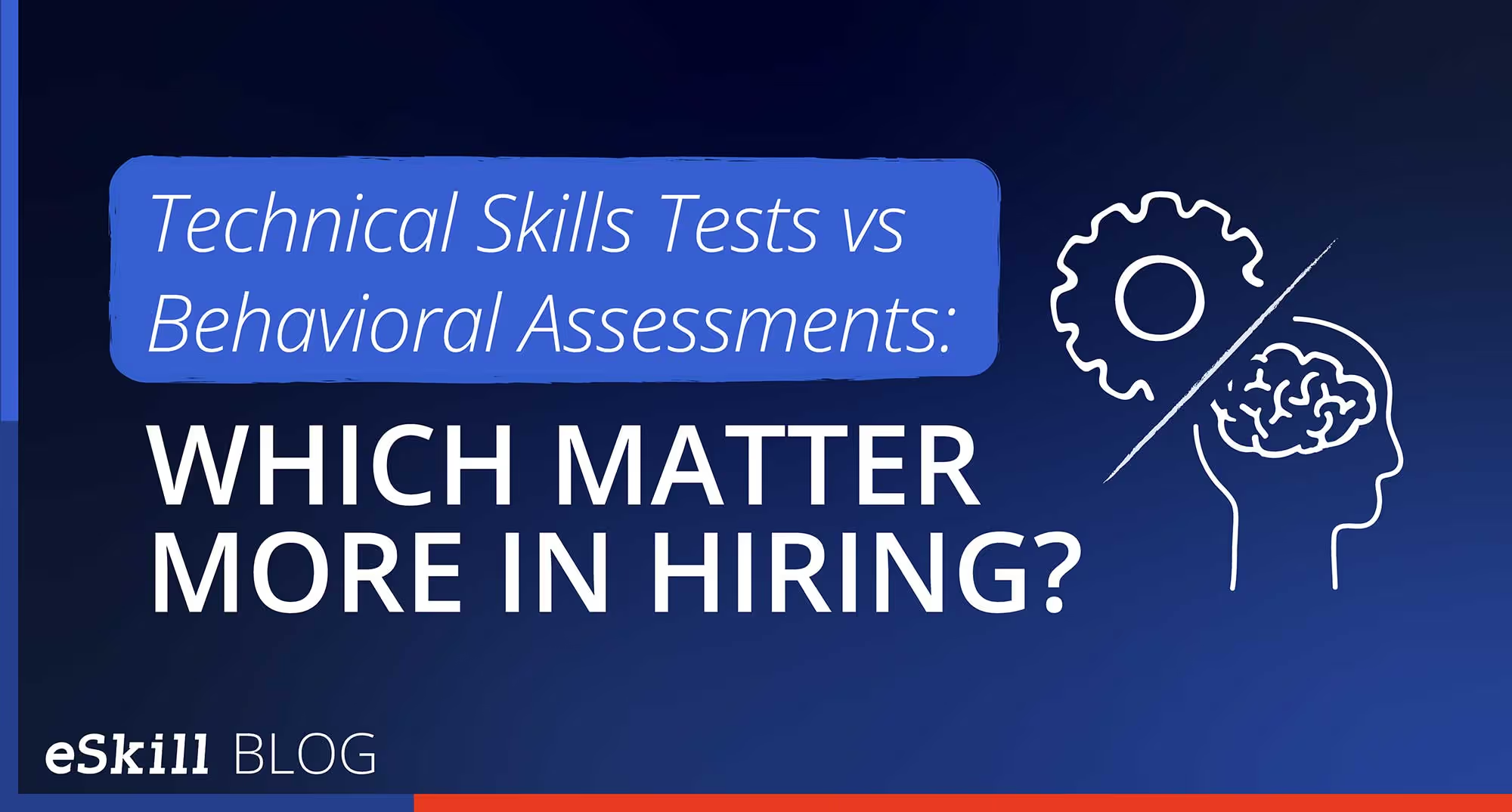As a business leader, you know that having a qualified team helps you maintain a competitive edge in the marketplace, so a large part of your company’s success depends on the quality of the people you hire.
HR professionals have learned that job placement assessment tests are the best way to improve hiring outcomes. According to a study by the Society for Human Resource Management (SHRM), 25% of employers plan to expand their use of pre-assessment tests for jobs within the next five years. In addition, one in 10 organizations that are not using a job placement assessment testing solution will implement one within five years.
When employers see statistics like this, they express interest in learning more about pre-employment skills tests. However, they have many questions. Two of the most common ones are “What is the best aptitude test?” and “What assessment tools do HR professionals use?”
What is a Job Assessment Tool?
When HR teams evaluate job placement assessment testing solutions, they often feel overwhelmed because there are many types and choices. They frequently ask, “What is a job assessment tool?”
Hiring teams ask candidates to complete job placement assessment tests so they can find the top contenders and eliminate unqualified applicants. The best career aptitude tests include multiple choice, true/false, and short answer questions. Most also include simulations that require applicants to complete tasks they will do on the job so hiring teams can evaluate how candidates will perform in typical work situations. Many also include video response questions since some skills cannot be assessed using written pre-assessment tests for jobs.
What Tests Do Recruiters Use?
The most commonly used job placement assessment tests are skills tests and behavioral assessments. Hiring teams say using these tests improves hiring outcomes and reduces the risk of costly hiring errors.
Skills tests show evaluators which candidates have the knowledge and experience required for a job. They also enable recruiters to screen hundreds, even thousands, of candidates and identify those who are the most qualified, without wasting countless hours reviewing resumes.
Business leaders know that productivity improves when team members work well together. So, they use behavioral assessments to see which applicants are the best fit for a job and their company culture.
Unlike skills tests, behavioral assessments are not diagnostic. They help recruiters evaluate a candidate’s personality and behavioral tendencies and determine whether the person will succeed in a job and assimilate well into their company culture.
By reviewing behavioral assessment results, recruiters can understand a candidate’s communication style, get a feel for how an applicant thinks and approaches problems, and predict how the prospective employee will perform in typical job situations. This helps them hire candidates with a high probability of thriving in their corporate environment.
What Are Some Examples of Job Assessments?
Job placement assessment tests evaluate a candidate’s knowledge and abilities for a given job. Businesses should implement an industry-leading assessment solution that provides access to an assessment library of validated, subject- and job-based skills tests.
Hiring teams can use off-the-shelf pre-assessment tests for jobs as-is or customize them for each job by eliminating irrelevant and inappropriate questions and defining question difficulty levels. The following are examples of skills tests available in the eSkill assessment library.
- Accounting Administrator
- Financial Analyst
- Office Manager
- Java Developer
- Customer Service Representative
- Executive Assistant
- Machine Learning Engineer
- Maintenance Technician
- City Manager
- 911 Dispatcher
- Firefighter
- Networking Engineer
- Medical Billing Specialist
- HR Assistant
- Paralegal
- Food and Beverage Manager
- Sales Representative
Behavioral Assessments
Skills tests show whether candidates have the skills you require but do not show whether they are a good fit for a job or your corporate culture. This means a candidate who scores high on a skills test could be wrong for a job because their personality and work style clash with your company’s work environment and culture.
Behavioral assessments show you how well a candidate will work with peers, team members, customers, and other internal and external stakeholders. These are some attributes that behavioral assessments help you measure:
- Communication style
- Teamwork and collaboration
- Management and work style
- Values and ethics
- Motivation
Benefits of Job Placement Assessment Tests
Organizations depend on job placement assessment tests because they improve hiring results and help enable HR teams to operate at maximum efficiency.
According to a SHRM study, 56% percent of employers say pre-assessment tests for jobs help them evaluate candidates’ skills, knowledge, and abilities more accurately than reviewing resumes and conducting interviews. Furthermore, 79% of HR leaders say job placement assessment test scores are as important as the information applicants provide on resumes and during interviews, if not more important.
When we ask business leaders and HR professionals what they see as the biggest advantages of using job placement assessment tests, they cite these benefits:
- Recruit Top Candidates: Pre-assessment tests for jobs help hiring teams easily verify which applicants have the required skills and experience. This is particularly important in light of the worldwide shortage of candidates with in-demand skills.
- Weed Out Unqualified Applicants: Recruiters need six or seven seconds to screen a resume. That adds up quickly when they receive thousands of resumes. By using a job placement assessment testing solution, HR teams can save hours by instantly reviewing applicants’ test results, identifying top qualifiers, and eliminating unqualified candidates.
- Reduce Unconscious Bias: Pre-assessment tests for jobs minimize unconscious bias because hiring teams make decisions based on skills and abilities instead of relying on gut feel. This improves hiring outcomes because the focus is on what candidates can do versus who they are. In fact, 23% of HR professionals surveyed said job placement assessment tests have helped their companies improve diversity enterprise-wide.
- Improve Hiring Accuracy: Traditional recruiting tools like resumes and interviews are seen as less reliable because over 85% of candidates lie on resumes and exaggerate their experience during job interviews. Job placement assessment test results show which candidates really do have the required skills and experience.
- Improve Productivity: A Harvard Business Review study shows that top-performing companies are over 40% more productive than their peers and have operating margins that are 30% to 50% higher than competitors. Pre-assessment tests for jobs help you improve productivity by making it easy to identify and hire the best candidates.
- Improve Team Performance: A recent McKinsey study showed that if a team implemented a cross-functional project that was supposed to take three years, the work would be completed in less than two years if they replaced 20% of the average performers on the team with top talent.
- Avoid Hiring Errors: A Gallup study shows that U.S. businesses lose $1 trillion yearly through voluntary turnover. The cost of replacing an employee can be as high as twice an employee’s annual salary, which means yearly turnover and replacement costs for a 100-person company where the average salary is $50,000 could be as high as $2.6 million per year (if 25% of the employees leave each year).
- Minimize Turnover: Around 68% of new hires leave within the first three months. Business leaders strive to avoid this by hiring employees who will stay with their company and develop into productive team members. Job placement assessment tests give them a way to reduce turnover by helping them hire employees who are likely to stay with their organization.
- Improve Candidate Experience: When you attract the interest of top candidates, you do not want to lose them because they become frustrated with your hiring process. Pre-assessment tests for jobs help you screen candidates quickly so you can identify top candidates and keep them interested and engaged.
How Pre-Assessment Tests for Jobs Improve Hiring
Are you wondering if implementing an assessment solution would have a major impact on hiring outcomes in your organization? The following scenario shows how using job placement assessment tests could have helped a company avoid a hiring mistake that cost them thousands of dollars and hours of lost productivity.
A regional property management company with offices throughout the West and Southwestern U.S. needed an administrative assistant to support its President and CEO and Vice-President of Asset Management. The company did not use pre-assessment tests for jobs. Applicants were only required to take a typing test to measure speed and accuracy.
The HR team reviewed resumes, and the applicants selected for an interview completed the requisite typing test. Once they evaluated candidates on the shortlist, Bettina stood out as the top candidate. Her typing test score showed she was fast and accurate. She also had excellent phone and customer service skills and experience working with senior executives. She accepted an offer, and the hiring team soon learned they had made a big mistake.
Regional managers received weekly reports on Friday morning that provided critical information they needed to plan their work for the following week. One of Bettina’s jobs was to compile the data, enter it on spreadsheets, and send the reports by courier on Thursday, so they arrived on Friday morning.
Bettina had no trouble completing the reports accurately, and she got along well with the two executives she worked for and with the regional office managers. However, multitasking was not her strong point, and she lacked the organizational and time management skills needed to complete the reports and send them on time.
She missed the courier pickup deadline several times, and the managers received their reports late. After being counseled on the importance of sending the reports on time, she rushed and made critical mistakes. One week, she entered the information for the wrong offices on several reports. Another week, she sent the reports on time, but some went to the wrong addresses.
In both cases, the regional managers called the head office in a panic because they did not have the information they needed to plan for the following week. Eve, the office manager, was forced to stop working on important projects, call each region to find out which reports were missing or incorrect, make the revisions, and send corrected copies priority overnight.
Excellent organizational, time management and multi-tasking skills were essential for this job. If this company had used job placement assessment tests, it could have evaluated applicants’ abilities in these areas. The results would have shown that Bettina was not strong in these areas, and she would not have been considered for the job.
How Job Placement Assessment Tests Improve Hiring
Employers in virtually every industry use pre-assessment tests for jobs to streamline candidate screening, reduce time-to-hire, and reduce turnover. These are some companies that improved hiring success once they implemented a leading assessment solution.
- Avon, a distributor of makeup and beauty products, used customized job placement assessment tests to improve their application process. It eliminated 50–65% of applicants during initial screening and reduced testing time from three hours to 45 minutes.
- DigiKey Electronics, a fast-growing electronic component distributor, used pre-assessment tests for jobs to evaluate candidates for sales representative positions and immediately saw a decrease in turnover.
- Charger Logistics, a commercial transportation company, reduced hiring costs by 30% and time-to-hire by 33% and increased employee retention to 95% when it began using customized job placement assessment tests.
- TaskUs is a global business outsourcing company that provides digital and customer services that help companies protect and grow their brands. Implementing job placement assessment tests helped it improve the quality of hire and reduce turnover by 25%.
- Encore Exchange, a medical billing service, began using pre-assessment tests for jobs and decreased applicant screening time by 67% and time-to-hire by 33%. The company also improved the quality of recruiting organization-wide.
- Regency Recruitment and Resources Limited, an HR solutions provider, implemented a popular job placement assessment testing solution and reduced recruiting costs by 50% while helping clients decrease time-to-hire.
- SolvOne, an environmental compliance company, requires new hires to complete training. Attrition was high because many candidates could not pass the course. It used pre-assessment tests for jobs to improve the quality of hire and increased graduation rates by 26%.
Get Started with Pre-Assessment Tests for Jobs
Job placement assessment testing solutions like the eSkill Talent Assessment PlatformTM help employers simplify recruiting, streamline candidate screening, improve quality of hire, and reduce hiring costs. Many eSkill clients have decreased hiring costs by up to 70% and reduced time-to-hire by around 60%.
Do you want to learn how pre-assessment tests for jobs can help you improve hiring enterprise-wide? Contact eSkill to request a demo.
Talk to sales






